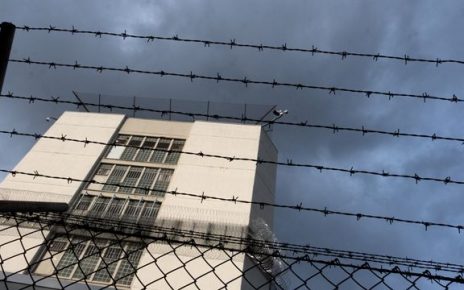If you are not getting enough sleep, you are losing muscle – a big-time fat fighter.
Have you put on a few extra pounds these last few months? Doing an hour of cardio every day and eating a clean diet of chicken, fish and broccoli isn’t always enough to emerge victorious (and thinner) in the battle of the bulge. Getting enough sleep will make a big difference in fat loss, and too little sleep will eat away at your lean muscle tissue – so adequate sleep could be what’s missing from the fat-loss equation and sabotaging your weight management.
A study published in the Annals of Internal Medicine showed that if you cut your nightly sleep from 8.5 hours to 5.5 hours, you would lose proportionally less fat. Overweight dieters who cut their caloric intake by 10 percent lost about the same amount of weight, 6.6 pounds, but the type of weight they lost was very different – depending on how much sleep they got.
“For the first time, we have evidence that the amount of sleep makes a big difference on the results of dietary interventions,” said study director Plamen Penev, M.D., Ph.D., assistant professor of medicine at the University of Chicago. “One should not ignore the way they sleep when going on a diet. Obtaining adequate sleep may enhance the beneficial effects of a diet. Not getting enough sleep could defeat the desired effects.”
Dieters in the study who got a full night’s sleep lost 3.1 pounds of fat and 3.3 pounds of fat-free body mass. When the subjects cut back on their sleep – sleeping three hours less – only a quarter of the weight lost was fat. Those sleeping less lost an average of 1.3 pounds of fat and 5.3 pounds of fat-free mass.
Exactly what did the sleep-deprived dieters lose? Researchers said that 75 percent of the weight burned with reduced sleep was protein – the building blocks of muscle – i.e., what you’re trying to increase or maintain in the first place.
Losing fat-free mass (muscle) is worse than it sounds. The more muscle you have, the leaner you will be. Muscle on your frame works like a furnace to raise your metabolism and burn off fat and excess calories, 24/7. So if you are not getting enough sleep, you are losing muscle – a big-time fat fighter.
“If your goal is to lose fat, skipping sleep is like poking sticks in your bicycle wheels,” Penev said. “Cutting back on sleep, a behavior that is ubiquitous to modern society, appears to compromise efforts to lose fat through dieting. In our study, it reduced fat loss by 55 percent.”
Besides losing less fat, those who slept less felt hungrier – and researchers know why. The sleep-deprived dieters produced higher levels of ghrelin, a hormone that triggers hunger, reduces energy expenditure and promotes fat retention – a triple whammy that will cause any weight-loss plan to tank. Looking at things a different way, getting enough sleep will help control your hunger.
“In our experiment, sleep restriction was accompanied by a similar pattern of increased hunger and… reduced oxidation of fat,” Penev said.
The study was performed at the University of Chicago’s General Clinical Resource Center, and followed 10 overweight but otherwise healthy volunteers aged 35 to 49. The subjects’ body mass index ranged from 25, which is overweight, to 32, which is obese. Participants were studied twice – once for 14 days in the laboratory while sleeping for 8.5 hours, and again for 14 days with only 5.5 hours of sleep. When they weren’t asleep, the subjects were at home, worked in offices or engaged in leisure activities. Everyone ate the same amount of calories – 1,450 each day – or 90 percent of what was required to maintain their weight without exercise.
Because all of the subjects in this study ate the same amount of food – and nobody was allowed to “pig out” and give in to their hunger pangs – researchers speculated that the experiment may have downplayed the negative consequences of not getting enough sleep. After all, if your ghrelin is out of whack due to lack of sleep and you wolf down a peanut butter sandwich, you’ll lose even less fat than the dieters in the study. The sleep-deprived dieters didn’t go that route, and their fat loss was still compromised. Suppose this controlled, clinical scenario was translated into real life – some people might enter the “Twinkie zone” at the first sensation of hunger. So the results of not getting enough sleep could be more serious and fat-inducing than the study suggests.
What’s the bottom line? Get enough sleep; it’s vital for fat loss and also for keeping your hard-earned muscle. And remember, the subjects in this study did not work out. If you train with weights, you need the extra sleep to rebuild the muscles that you tear down in the gym. Sleep is when your muscles grow and repair; if you don’t give your body the sleep it needs, the only parts of you that will get bigger are your stomach and your butt.
Reference:
Nedeltcheva Arlet V, Kilkus Jennifer M, Imperial Jacqueline, Schoeller Dale A, Penev Plamen D. Insufficient Sleep Undermines Dietary Efforts to Reduce Adiposity. Ann Intern Med, October 5, 2010 153:475-476.
The post Burn More Fat … In Bed first appeared on FitnessRX for Women.




